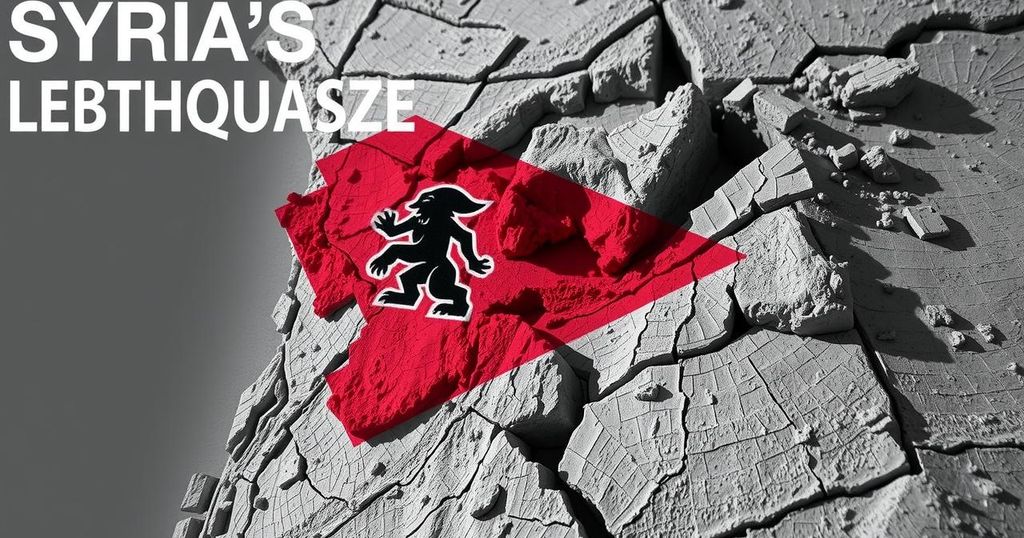Post-Assad Syria: Ramifications for Lebanon’s Political Landscape

The collapse of Assad’s regime in Syria has ignited a wave of activism among Lebanon’s Sunni factions, culminating in demands for the release of Sunni prisoners and a push for broader amnesty. As Hizbullah faces internal pressures and the Christian community remains divided, fears of instability persist, particularly regarding potential jihadi resurgence from Syria. The political landscape is fraught with challenges as Lebanon seeks to address these emerging realities.
The recent upheaval in Syria following the collapse of Bashar al-Assad’s regime triggered significant reactions in Lebanon, particularly among the Sunni communities. Initially, the fall of Assad was met with fervor in various Lebanese regions, such as Tripoli and Sidon. However, this excitement swiftly morphed into demands from Sunni Islamist factions like Jamaah Islamiya, who began advocating for the release of Sunni prisoners, some of whom had languished for years in Lebanese jails. They expressed a desire for a broad amnesty for all jihadists, fueled by a surge of hope stemming from recent developments in Syria.
The momentum of this Sunni reawakening coincides with a gradual strengthening of Sunni factions in Syria that have sought to weaken the Shiite Hizbullah in Lebanon. Sheikh Ahmad Shemali of Tripoli epitomized this burgeoning sentiment during a December 10 protest, urging immediate amnesty for jailed Islamists and promising further action in pursuit of their goals. His declarations underscore a potential escalation in Sunni activism within Lebanon.
However, the political landscape in Lebanon remains fractious. The Shiite community is grappling with the consequences of Hizbullah’s diminished standing following military setbacks. This challenge has intensified with tensions in discussions between Lebanese Armed Forces Commander General Joseph Aoun and Hizbullah officials regarding military disarmament and compliance with ceasefire agreements, thereby raising questions about the future balance of power in Lebanon.
In parallel, the Lebanese Christian community is embroiled in its own internal disputes concerning a presidential candidate to bridge respective divides. The Free Patriotic Movement, associated with President Michel Aoun, faces pressure from rival factions led by Samir Geagea and Samy Gemayel, complicating any unified approach. This division not only exacerbates existing tensions but also undermines their collective strength in confronting the Shiite bloc’s influence in Lebanese politics.
Amidst these developments, there is palpable apprehension regarding the potential spillover of Syrian unrest into Lebanon. The historical memory of ISIS’s incursion into Arsal remains vivid, fueling fears that jihadi elements may seek to exploit changing circumstances. Nevertheless, leaders like Ahmad al Sharaa have eased concerns of direct Syrian involvement in Lebanese affairs, stating their preference for instability to remain contained within Syria, while supporting General Aoun’s presidential aspirations.
The political landscape in Lebanon has been significantly influenced by external factors, particularly the dynamics in Syria. The collapse of Assad’s regime catalyzed both jubilation and subsequent unrest among Lebanese factions, particularly within the Sunni community. This has compelled leaders from various backgrounds, including Shiite and Christian factions, to re-evaluate their positions amid fears of destabilization and renewed sectarian conflicts. As Sunni groups seek to assert themselves, the interactions and alliances formed in the region continue to shape Lebanese internal politics and security expectations.
In conclusion, the political environment in Lebanon is undergoing a period of significant turbulence influenced by recent developments in Syria. The Sunni community’s reactivation poses challenges to established political dynamics, particularly for the Shiite Hizbullah and the vulnerable Christian factions. As Lebanon navigates through these tensions and critical political milestones, vigilance regarding the potential for instability and external influence will remain paramount for its future.
Original Source: www.jewishpress.com








